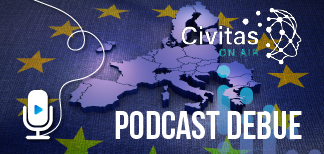
The Eurovision Song Contest has been a unique and evolving highlight in Europe’s cultural calendar for nearly seven decades. Originally conceived as a symbol of European broadcasting unity and a testament to post-war integration, Eurovision has expanded both in the number of countries participating and in its cultural and political significance. What started as a celebration of music has become an event where politics often takes center stage, reflecting the complex dynamics of the European continent.
In our latest podcast episode, part of the “Debating Europe: Internal and External Dynamics of European Integration” (DEBUE) project, we dive deep into the 2024 Eurovision contest, which has proven to be the most controversial edition yet. This year, the event saw politics move to the forefront, making it not just a competition of music, but also a stage for political expression and discourse.
Dr. Kerry Longhurst, who coordinates the DEBUE project, leads this insightful discussion, joined by experts Adam Rogowski, Kinga Boćkowska, and Justyna Kampka. Together, they explore how Eurovision 2024 has mirrored Europe’s shifting political landscape, from the tensions between participating countries to the broader themes of unity and diversity that the contest celebrates and challenges.
From themes of unity to diversity, this episode highlights how Eurovision has become a reflection of Europe’s evolving cultural and political landscape.
This podcast episode was produced at Collegium Civitas as a part of the DEBUE project, co-funded by the European Union under the Jean Monnet Programme. The DEBUE initiative continues to serve as a vital platform for informed discourse on the challenges and dynamics shaping European integration

